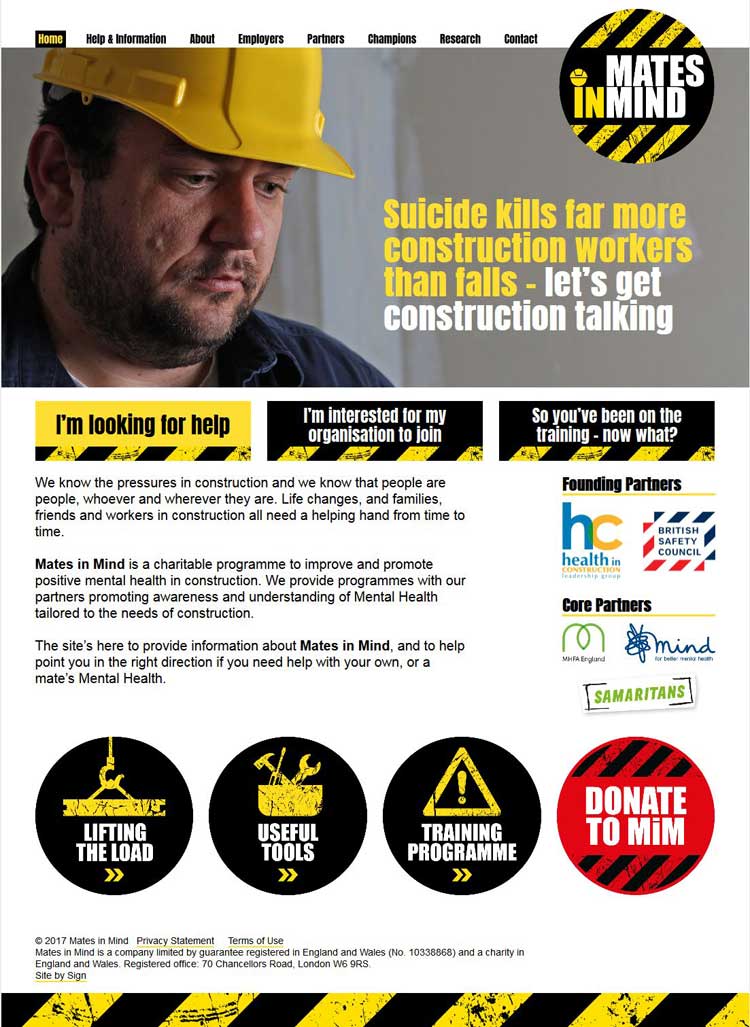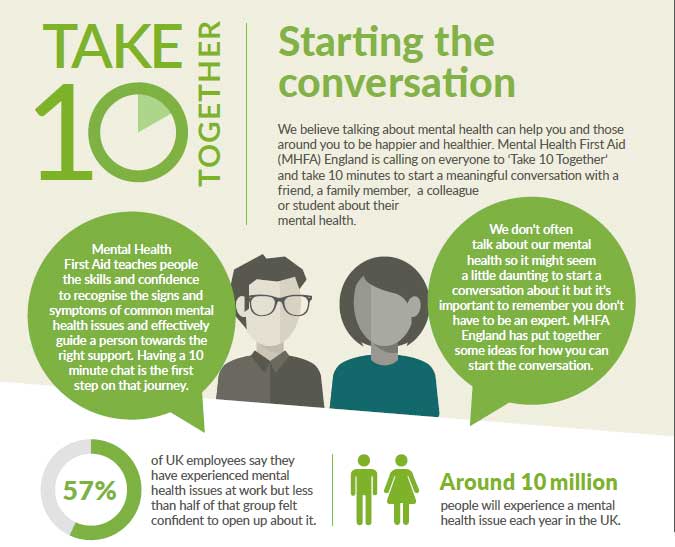At any given time, across England and Wales, one worker in six is said to be experiencing depression, anxiety or other stress related problems1. Assuming an industry population of 2.1 million people (6% of the UK workforce) that suggests 350,000 construction professionals may be affected.
Those 2009 figures from the Office of National Statistics aren't too far removed from those cited in a 2006 CIOB report - Occupational Stress in the Construction Industry. Here authors found that almost 70% of workers had 'suffered from stress, anxiety or depression as a direct result of working in the industry'.
Behind those numbers, of course, are individuals. And although dealing with mental ill health can feel isolating, a key takeaway is the fact that there's always likely to be someone close by who is dealing with similar feelings or can help.
An industry on the edge?
So why are construction industry professionals so badly affected? It's not too difficult to draw up a list of contributory factors.
Pressure caused by the working patterns and demands of life in construction can exacerbate the impact on emotional health and wellbeing. In a sector with a high number of male workers, the specific risks associated for men and mental ill health cannot be ignored. For men between the ages of 15 and 49 (who are typically part of the workforce) suicide is now the leading cause of death. And, of course, the toll is not just mental and physical - there's an economic impact too. Mental health issues account for people taking almost 70 million days off sick per year – the most of any health condition – costing the UK economy between £70 billion and £100 billion a year2.
The solution?
The construction industry can be notoriously difficult to change. It is multi-organisational (joint ventures, framework contracts), has a multi-tiered supply chain with numerous and exacting requirements, and is multi-cultural (in terms of cultural backgrounds and education across roles as diverse as labourers, engineers and senior directors). There's also a very high emphasis on driving out costs with tight margins posing a challenge across many projects. All these factors can serve to make the industry a challenging one in which to work.
All this said, there's now a growing feeling that just as all workplaces must have a physical first aider, a named person responsible for employee mental health could well be just as essential.
Here we round up some sources of help and advice for those in the industry coping with stress, anxiety or depression:
Mates in Mind
 Following the success of the MATES in Construction charity established in 2008 in Australia, the Health in Construction Leadership Group along with the British Safety Council recently launched a sector wide programme called Mates in Mind.
Following the success of the MATES in Construction charity established in 2008 in Australia, the Health in Construction Leadership Group along with the British Safety Council recently launched a sector wide programme called Mates in Mind.
The campaign aims to increase awareness and provide methods to create positive mental health for the millions of people employed in the UK construction Industry.
With firms like Balfour Beatty, Careys and Willmott Dixon already signed up, the initiative hopes to reach 100,000 employees in the first year (and three quarters of the industry by 2025).
Under the programme, senior managers will receive two-days of training, with construction site supervisors receiving a morning of training in mental health awareness. Individual workers will also receive 45 minutes on training.
The crusade will be backed with a 'mental health first aid' training programme supported by Mental Health First Aid England, Mind, and the Samaritans.
Mental Health First Aid England (MHFAE)
 MHFAE provides training to individuals to help them better identify the 'warning signs' of mental health and encourages people to take time to communicate with their employees and colleagues.
MHFAE provides training to individuals to help them better identify the 'warning signs' of mental health and encourages people to take time to communicate with their employees and colleagues.
The organisation offers a raft of useful questions that can be used to identify concerns and advice to help ensure those concerns are properly heard.
The organisation's 'Take 10 together' toolkit provides practical help and resources that firms will find helpful when addressing this matter in the work place.
Time to Change
 In association with the charities Mind and Rethink Mental Illness, Time to Change have introduced Time to Talk Day which takes place in February each year.
In association with the charities Mind and Rethink Mental Illness, Time to Change have introduced Time to Talk Day which takes place in February each year.
The campaign aims to encourage people, including those in the workplace, to take some time to talk about mental health.
The Time to Change website includes a set of supporting resources and details of the kinds of mental health problems that people may suffer from and some of the stigmas that still abound.
NHS services
A range of mental health services are available for free on the NHS.
Most services will require a referral from a GP, though some allow people to refer themselves (these typically include services for drug and alcohol problems as well as some psychological therapies).
If your mental health difficulty is related to stress in your workplace your employer will be able to provide information on what occupational health services are available to you.
The mental health pages on the NHS Choices website contain a range of helpful advice for those coping with mental health issues. There's even a 'mood zone' for those looking to cope with stress, anxiety or depression.
In summary...
In an industry that can be challenging and stressful it's important to recognise the impact of mental health problems. In recent years employers have increasingly woken up to the very real impact of stress and anxiety in the workplace.The campaigns we've touched on here are also helping to raise awareness which can only be a good thing when it comes to chipping away at those frightening statistics we shared at the start of this article.


